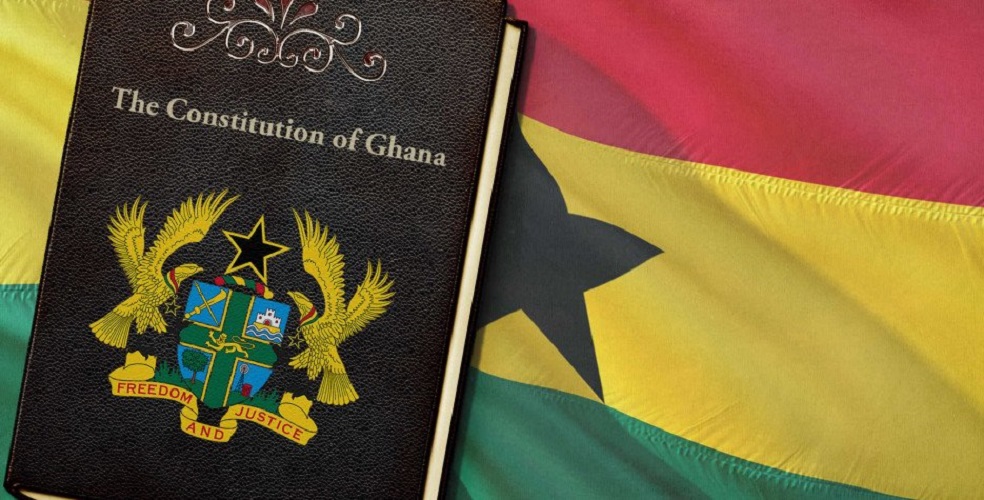The Centre for Socioeconomic Studies (CSS) has called on the judiciary to protect the privacy of subscribers of telecommunication networks and uphold the constitution.
CSS in a press release revealed that government requested through KelniGvG, that telecommunication networks– MTN, Vodafone, AirtelTigo and Glo– should provide the information of subscribers which according to law is a breach of privacy.
Despite the government’s denial on its request for subscribers’ information in court, the CSS stated that “contrary to claims by government and its assigns that no such act is being considered nor perpetuated, it is now public knowledge that Government through KelniGVG has requested the telecommunication companies to provide it with customers’ information.”
“These denials even under oath by agents of Government; KelniGVG notwithstanding, credible information available to CSS show that KeliniGVG under the instructions of government has indeed carried out such directive contrary to the public denials and in open court.”
CSS suggests that government is shadowing behind KelniGvG and the enactment of E.I. 63.
The centre in its release, based its call for the intervention of the judicial arm of government on Article 18(2) of the 1992 Constitution of Ghana which states that
“no person shall be subjected to interference with the privacy of his home, property, CORRESPONDENCE or COMMUNICATION except in accordance with the law and as may be NECESSARY in a free and democratic society for public safety or the economic well-being of the country, for the protection of health or morals, for the prevention of disorder or crime or for the protection of the rights or freedoms of others”.
Citing MTN Ghana as the only telecommunication network that has by far responded to the application for interlocutory injunction, CSS highlighted some concerns and questions it hopes the Ghana Chamber of Telecommunications will address.
The first concern raised was
“the CSS seeks from the Ghana Chamber of Telecommunications a disclosure on whether the Government of Ghana, through KelniGVG Ltd., did request from Vodafone, AirtelTigo, Glo, and Internet Data Service Providers information on their customers in an un-hashed format such as full disclosure of mobile money transactions of subscribers, dump of merchant codes and cell reference data. This request, which breaches the NCA’s guidelines on data requirements for implementation of E.I. 63, was made to MTN Ghana via an email from KelniGVG (k.nyarko@kelnigvg.com) as revealed by MTN Ghana in its affidavit available at the High Court, General Jurisdiction, Accra.”
The second concern was directed at the other telcos as it is already known that MTN has declined government’s request.
“The CSS understands that though MTN Ghana has declined the request due to potential data breach, it is unknown to the subscribers of Vodafone, AirtelTigo, Glo and other Internet Data Service Providers whether same request has been made on them, and if same has been complied with in breach of the privacy of their customers,” it queried.
Lastly, the centre asked the Ghana Chamber of Telecommunications the necessary moves they have made to protect the privacy of customers.
It inquired, “what measures, as a matter of courtesy and ethical corporate responsibility has the Chamber and its member instituted to ensure the information of its customers is safe, and in line with modern constitutional and democratic values.”
The Centre for Socioeconomic Studies (CSS) assured that its concerns are genuine and in the interest of the public.
“In the public interest, the Centre for Socioeconomic Studies seek these disclosures from the above mentioned Telcos to allay the fears of their subscriber base and promote transparency and ethical corporate citizenship as espoused as core values of the Ghana Chamber of Telecommunications,” it said.
Read the press a release below:

Executive Instrument (E.I) 63
On 23rd March 2020, President Akuffo-Addo gazetted the E.I 63 into law.
The Preamble of E.I. 63 says:
“Whereas Ghana is committed to dealing with emergency situations, especially public health emergencies; Whereas there is an urgent NEED to establish an emergency communication system to trace all contacts of persons suspected of or infected by a public health emergency and identify the places visited by persons suspected of or infected by a public health emergency.”
Oppositions to E.I 63
The Deputy Managing Director of CTK Network Aviation, Kwaku Antwi-Boasiako, in an article stated that there are many alternatives the government could have considered however, “in my view, another ulterior motive, which is, spying on political opponents and citizens in general!”
Laying emphasis that the new act is a violation of privacy, he cited the giants in the technological world– Apple and Google– found a solution in contact tracing without invading on the privacy of citizens.
He said, “these measures violate the privacy of communication granted by Article 18(2) even though they are not necessary to undertake contact tracing to deal with COVID-19 (once you already have the location log file and roaming files). Apple and Google this week jointly announced a technological solution for coronavirus contact tracking that does not allow the authorities to know the numbers citizens call or the numbers of people citizens receive calls from, the mobile money transactions of citizens or any other mobile phone activities except to know who had come into close contact with a person who has tested positive for COVID-19.”





















